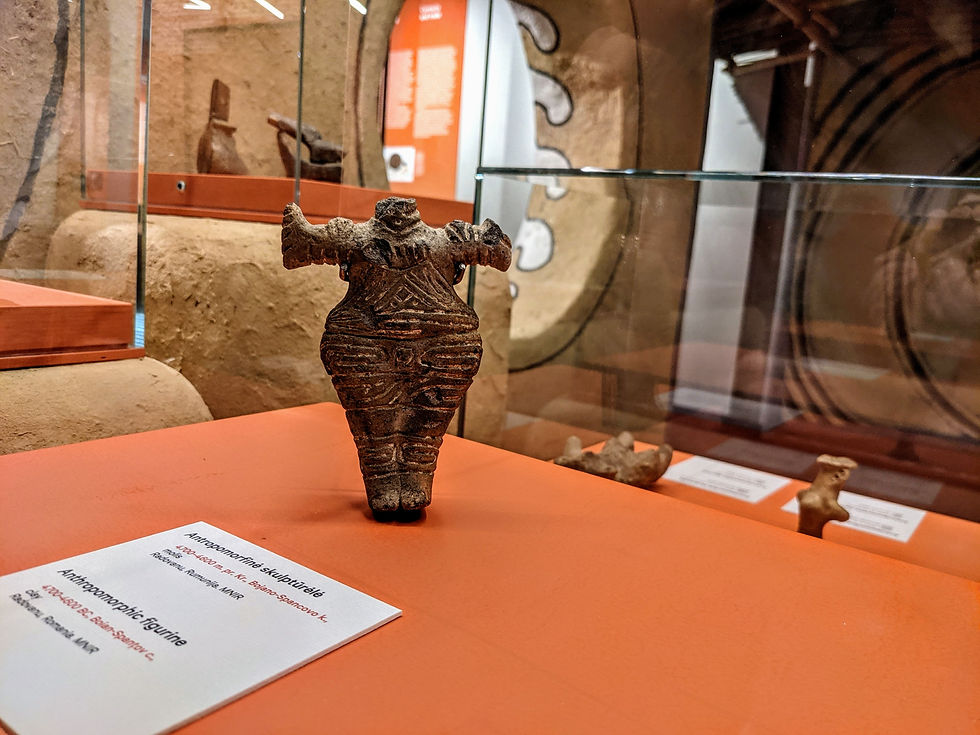Singing the Sweet Songs of the Goddess
- Eva
- Oct 3, 2021
- 2 min read
Updated: Feb 7, 2022
Between honing in on new living arrangements, following our car's daily adventures across the Atlantic, and languorous trips to the migration office, it's hard to believe October has arrived at my doorstep. A few lifetimes ago in Boulder, CO, I would reach for the light in the smallest and most tender of ways: listening to the Beach Boys during snowstorms; walking along Boulder Creek; drinking my favorite chai in coffee shops with friends. These days, my force field involves dance parties to Harry Styles's effervescent 'Fine Line;' brisk walks to the nearest Pumpkin Spice Latte; cozy bookstores and hygge with new friends. (The seasons have been stirring here for a while now, and I feel like I'm playing tag with the blue skies and the yellowing leaves.) But, one thing here has lit me up like nothing else:
Acting as a bridge from last week's Rudens Lygiadienes (Autumn Equinox) celebration that honored Lithuanian archeologist Marija Gimbutas's seminal work on the Goddess culture of Old Europe, I visited the House of Histories's exhibit dedicated to her work: "Goddesses and Warriors: 100 Years to Marija Gimbutas." Marija's eco-informed Lithuanian background provided breadth and scope as she uncovered controversial and meaningful work on former Goddess cultures of the world.
And, much as I was in reverence and awe around last week's equinox celebration, this same fervent line ran through me as I viewed ancient anthropomorphic figurines from Romania, Bulgaria, Moldova, and on. The symbolic languages, organic shapes, and striations moved me, reminding me of the possibility of more than war. I'd recognized Dr. Gimbutas's canonical work from previous art history research, but had never pieced together her Lithuanian lineage, nor had any idea I would have the opportunity to see her life's work in real time. And at the same time, it was inspiring to a multi-disciplinary scholar whose work has recently been validated by advances in archaeological and genetic research. (Told y'all I was a nerd!)

So, of course I went home and convinced The Scientist to watch a documentary with me on her life, 'Signs Out of Time: The Story of Archaeologist Marija Gimbutas.' I can certainly understand why her research was so controversial and received so much criticism and pushback, but I was mostly moved by the video and audio of Lithuanian culture and life that provided context for Dr. Gimbutas's work. I was struck by the through-lines of women singing dainos (Baltic folk music noted for mythological content), reverence for the Earth, and the continuance of culture - such as I have seen many times already. If any archeologist could tap into these ancient cultures that revere the feminine, it makes sense that Marija Gimbutas would be such a person.
As the documentary ended, my husband turned to me and said, "How cool is it that you ended up here in Lithuania, of all places?"
And I have to say: I wholeheartedly agree. So, I will continue to have as many Harry Styles dance parties as needed to continue rooting into this wonderful and rich culture. Until next time - viso gero!
Kommentare